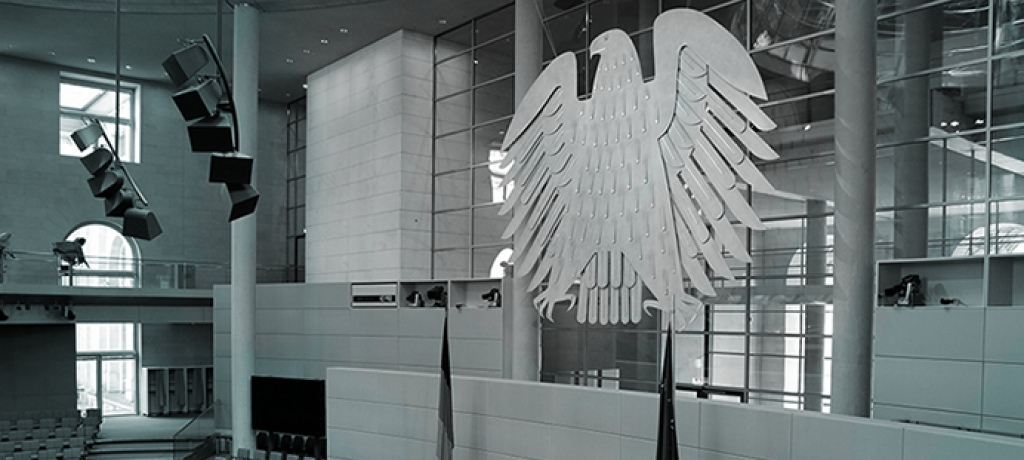Tax relief as corona government aid – Findings from TRR 266 research

The consequences of the Corona pandemic pose major economic and financial challenges for businesses, self-employed persons and citizens. Tax relief offers a way to provide immediate liquidity to mitigate the negative impact of the pandemic. Deborah Schanz recently gave her opinion as a scientific expert in the Finance Committee of the German Parliament (Bundestag) on the 3rd Corona Tax Relief Act and made suggestions for improvements. The specific topics were: Loss carryback, child bonus and VAT reduction in the catering industry.
On February 22, 2021, I was heard in the Finance Committee of the Bundestag regarding the 3rd Corona Tax Relief Act and proposed necessary changes for the economic recovery of businesses through tax relief. My statement was supported by two important findings from the TRR 266 Accounting for Transparency: the demand for an improved loss carryback and the empirical findings of the German Business Panel on the impact of the pandemic on the catering industry.
Demand for an improved loss carryback
As a result of the corona crisis, companies and self-employed professionals are struggling with an enormous drop in revenue. Consequently, they lack liquidity. Nevertheless, they still have payment obligations that must be met. Since the beginning of the pandemic in March 2020, the TRR 266 researcher team has already called for an improved loss carryback to combat liquidity shortages. This measure creates instant liquidity, but costs taxpayers little as it only involves a deferral of tax payments, not a subsidy.
Extension of the maximum carryback amount
The 3rd Corona Tax Relief Act extended the maximum carryback amount to €10 million or €20 million (in the case of joint tax assessment), thus still limiting the effectiveness of the tax measure to certain size categories. The amount of the loss carryback should therefore be expanded and the limit for 2020 and 2021 should be completely lifted.
Time extension of the loss carryback to 3 years
A further extension to three years is also necessary to take into account the consequences of the two consecutive pandemic years. The time extension particularly supports small and medium-sized businesses, which, due to their small size, do not benefit from an increase in the maximum amount. For example, if a loss from 2020 has already been offset against profit from 2019 and the 2019 profit has been completely used up in the process, a loss carryback from 2021 cannot take effect until it is offset against 2018 profit.
The extension of the loss carryback in terms of amount and time would help companies that have generated profits in the past to remain solvent. At the same time, these measures do not represent a tax cut, but merely shift tax payments by companies into the future. As a result, these measures place a significantly lower burden on taxpayers in the long term than, for example, non-refundable grants.
Catering industry particularly hard hit despite Corona aid
In the 3rd Corona Tax Relief Act the VAT reduction to 7 % in the catering industry was extended beyond June 30, 2021, for a limited period until December 31, 2022. This is a sensible measure to support the catering industry, which has been particularly hard hit by the pandemic. The fact that catering businesses are especially suffering from the restrictions imposed by Corona is also confirmed by empirical findings from the German Business Panel. The German Business Panel is a long-term survey panel of the DFG-funded transregional project “Accounting for Transparency”. The results show that profits in the catering industry have fallen by -50.3 % compared to the previous year. In addition, 40 % of businesses expect to become insolvent despite government aid.
The second Corona survey by the German Business Panel also revealed sector-specific differences in terms of passing on the VAT cut to consumers. While prices in retail and wholesale have fallen since July 2020, they have been increased by the majority of the heavily affected sectors. The catering sector recorded the strongest price increase at around 2.2 %. Businesses generally did not pass on the VAT cuts to consumers, but instead even increased their prices to cope with the crisis-related consequences.
In view of these findings, it is unlikely that the VAT reduction will be passed on to consumers in the future either. That means the extension of the tax rate reduction in the catering industry over a longer time period will lead to an immediate liquidity advantage for the majority of businesses. It thus represents an effective tax measure to safeguard the catering industry long-term.
The time extension also makes sense as it allows businesses to financially offset the conversion expenses (e.g. programming of electronic point-of-sale systems due to the tax rate reduction) created by the first Corona Tax Assistance Act when the measure was introduced effective July 1, 2020. The extension of the measure until December 2022 ultimately increases its impact as it can take effect at a time when the catering industry is open again.
The complete statement on the Third Corona Tax Relief Act by Deborah Schanz can be found here.
To cite this blog:
Schanz, D. (2021, March 9). Tax Relief as Corona Government Aid – Findings from TRR 266 Research, TRR 266 Accounting for Transparency Blog. https://www.accounting-for-transparency.de/tax-relief-as-corona-government-aid-findings-from-trr-266-research/
Related Content
COVID-19: combat liquidity shortages with immediate loss carryback
Immediate loss carryback is an important measure to provide affected companies with short-term liquidity.
Read moreGerman Business Panel pilot study: Shedding light on how corona aid affected firms in Germany
How are firms affected by the corona crisis? Is the German governments’ support effective? The German Business Panel recently conducted its first survey and received responses of more than 9.500 firms about the effectiveness of Germany’s corona aid.
Read more
Responses